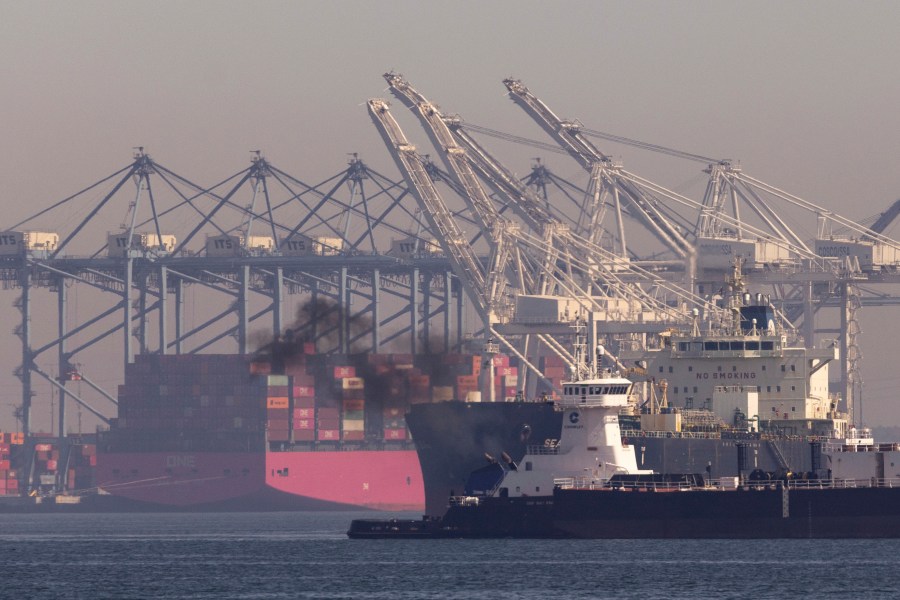UC Riverside researchers have begun a $3.5 million study to track air pollution from cargo ships off the Southern California coast, aiming to better understand the effects of oceangoing vessels on nearby communities.
The 30-month project, led by environmental engineering professor David Cocker, is funded through legal settlements administered by the Rose Foundation for Communities and the Environment.
Researchers will focus on identifying the unique chemical signatures of emissions from ships that stop at the ports of Los Angeles and Long Beach—two of the nation’s busiest ports and major sources of airborne toxins in the region.
“This research will help close critical knowledge gaps and give frontline communities and regulatory agencies the information necessary to advocate for public health and shape policies related to port activity,” Cocker said.

Ships burning diesel fuel release pollutants that have been linked to asthma, cancer and reduced life expectancy, including soot, black carbon, nitrogen oxides and sulfur compounds, officials said.
The surrounding communities of San Pedro, Wilmington, Long Beach, and Carson also face emissions from diesel trucks, trains and cargo-handling equipment, though port authorities have begun phasing in zero-emission technology.
The study will use air monitors on the ground and direct sampling of smokestacks, as well as a commercial-grade drone to collect pollution samples. The drone will track exhaust plumes over the ocean and capture real-time data using high-precision sensors and samplers, researchers said.
“We can actually look at the signatures of ships, collect those same signatures in the surrounding community, and match them,” Cocker said. “This gives us a strong foundation for determining how much pollution is coming from oceangoing vessels.”
The research team expects to sample emissions from as many as 100 ships in the first year, and that gathered data will be analyzed both in mobile trailer labs and at UC Riverside’s College of Engineering Center for Environmental Research and Technology.
Results will be used to build a reference library of ship emission profiles for comparison with pollution levels in nearby neighborhoods, UCR officials said.
To read more about the study, click here.
